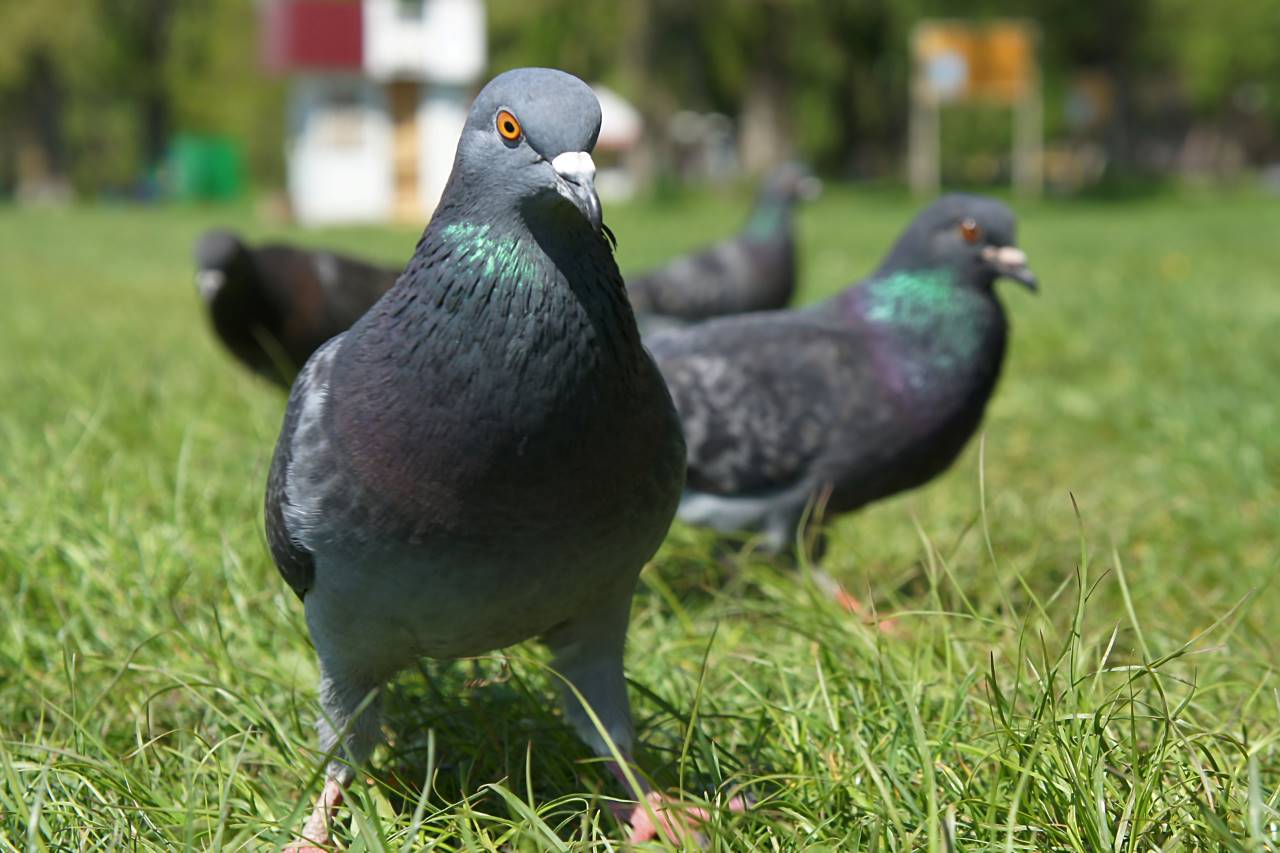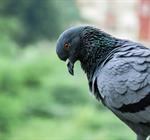
24 Sep 2024 | Apex Environmental Services (UK) Ltd
Different Types of Pigeons in the UK
When you're strolling through a park or city centre in the UK, you've likely encountered numerous pigeons. But did you know that these ubiquitous birds come in various types, each with its own unique characteristics? In this comprehensive guide, we'll explore the diverse world of pigeons in the UK, from the common species you might see daily to some lesser-known varieties that may surprise you.
Common Pigeon Species in the UK
Rock Pigeon (Columba livia)
The rock pigeon, also known as the rock dove, is perhaps the most recognisable pigeon species in the UK. These birds are the ancestors of domesticated pigeons and are often seen in urban areas, and typically have grey plumage with two dark wingbars and a white rump. If you're interested in spring pest prevention strategies, understanding the habits of rock pigeons can be particularly useful, as they tend to nest on buildings and other structures.
Wood Pigeon (Columba palumbus)
Wood pigeons are the largest pigeon species in the UK. You'll easily identify them by their distinctive white neck patches and pink breast. These birds are commonly found in woodlands, parks, and gardens across the country. Their diet primarily consists of seeds, leaves, and fruits, making them a frequent visitor to bird feeders in residential areas.
Feral Pigeon (Columba livia domestica)
Feral pigeons are descendants of domesticated rock pigeons that have returned to the wild. These birds come in a variety of colours and patterns, ranging from the typical blue-grey to white, black, or brown. You'll often spot them in urban environments, where they've adapted well to living alongside humans.
Collared Dove (Streptopelia decaocto)
The collared dove is a relatively recent arrival to the UK, having first bred here in the 1950s. These elegant birds are easily recognised by their pale, pinkish-grey plumage and distinctive black collar on the back of the neck. They've rapidly spread across the country and are now a common sight in gardens and urban areas.
Lesser-Known Pigeon Species
Stock Dove (Columba oenas)
The stock dove is often overlooked due to its similarity to the rock pigeon. However, keen observers will notice its lack of white rump and wing bars. These birds prefer woodland habitats and often nest in tree cavities or old buildings. Their conservation status is of some concern, making them an important species to monitor.
Ring-Necked Dove (Streptopelia capicola)
Although not native to the UK, small populations of ring-necked doves have established themselves in some areas, particularly in the south of England. These birds are similar in appearance to collared doves but have a more extensive black collar that wraps around the entire neck.
Turtle Dove (Streptopelia turtur)
The turtle dove is a summer visitor to the UK and, sadly, one of our fastest declining bird species. These small, attractive doves have a distinctive tortoiseshell pattern on their wings and a soft, purring call. Conservation efforts are ongoing to protect these beautiful birds and their habitats.
Unique Characteristics and Behaviors
Appearance
While all pigeons share certain physical traits, each species has its own unique features. From the iridescent neck feathers of the rock pigeon to the delicate patterns of the turtle dove, these birds showcase a surprising diversity in appearance.
Habitat and Range
Pigeons have adapted to a wide range of habitats across the UK. While some species, like the wood pigeon, are found throughout the country, others have more limited ranges. The turtle dove, for instance, is primarily found in the south and east of England during its breeding season.
Behavior
Pigeon behavior varies between species, but most are known for their cooing calls and distinctive bobbing walk. Some species, like the wood pigeon, are relatively shy, while others, such as feral pigeons, have become quite bold in urban environments.
Pigeons as Pests

Nuisance Behavior
While pigeons can be fascinating to observe, they can also become a nuisance in urban areas. Large flocks may congregate in public spaces, creating noise and mess. If you're experiencing issues with pigeons, consider our top-rated anti-bird services for humane and effective solutions.
Property Damage
Pigeons can cause damage to buildings and structures through their nesting habits and droppings. Their acidic excrement can corrode metal and stonework over time, leading to costly repairs.
Health Hazards
Perhaps the most concerning aspect of pigeon infestations is the potential health risks they pose. Pigeon droppings can harbour harmful bacteria and fungi, which may lead to respiratory issues and other health problems if not properly managed.
Pigeons and Health Risks
Disease Transmission
Pigeons are known to carry several diseases that can be transmitted to humans, including salmonella, E. coli, and cryptococcosis. While the risk of transmission is generally low, it's important to be aware of these potential hazards, especially in areas with large pigeon populations.
Preventive Measures
To minimise health risks associated with pigeons, regular cleaning and maintenance of affected areas is crucial. This includes proper disposal of droppings and nesting materials, as well as implementing deterrents to discourage pigeons from roosting on buildings.
Public Awareness
Educating the public about the potential risks associated with pigeons is an important step in managing these birds effectively. While we don't want to demonise these creatures, it's essential to strike a balance between appreciating their presence and maintaining public health and safety.
Final Thoughts
Ultimately, the world of pigeons in the UK is far more diverse and complex than many people realise. From the common rock pigeon to the endangered turtle dove, these birds play various roles in our ecosystems and urban environments. While some species can become pests, it's important to approach pigeon management with a balanced perspective, considering both the challenges they present and their ecological importance.
If you're facing issues with pigeons on your property, remember that professional pest control services can offer humane and effective solutions. By understanding the different types of pigeons in the UK and their behaviors, we can better coexist with these fascinating birds while mitigating any potential negative impacts.


